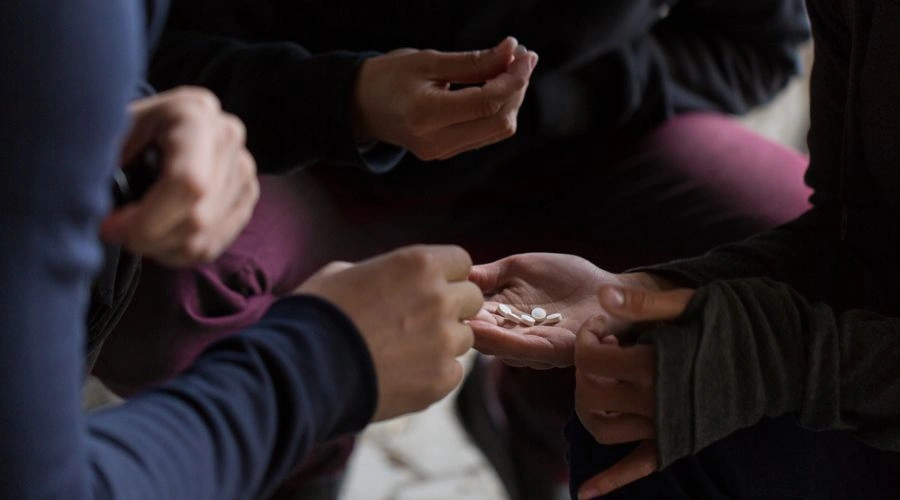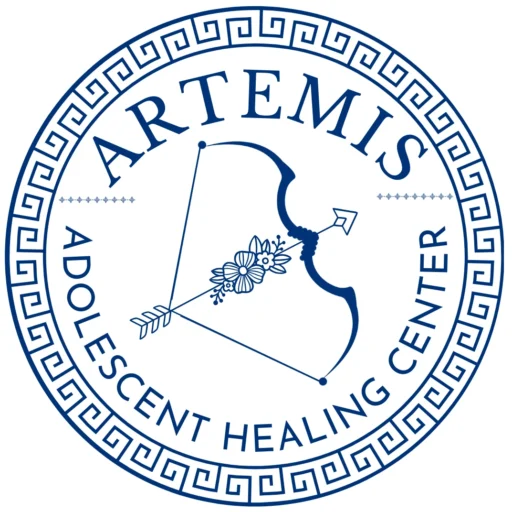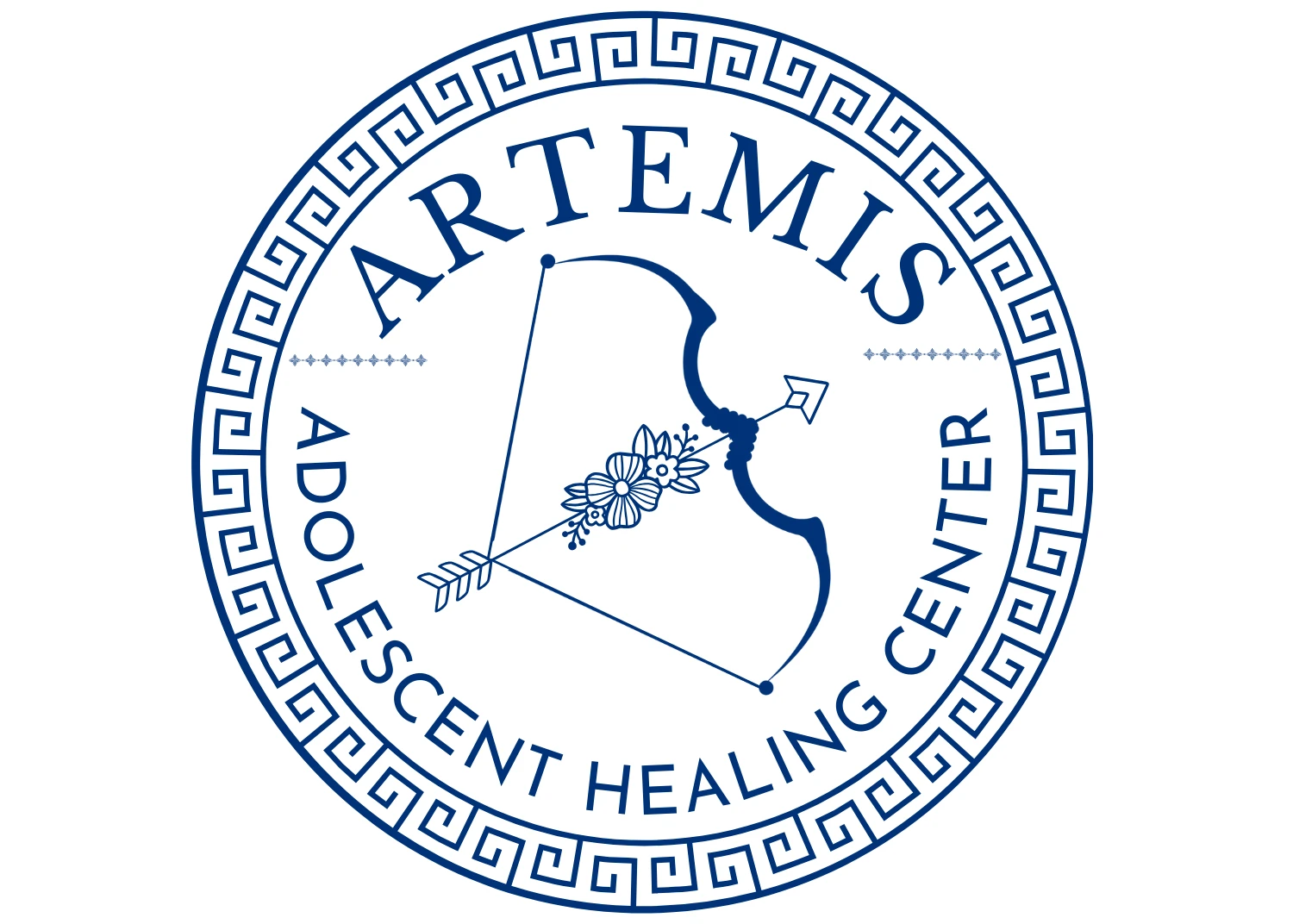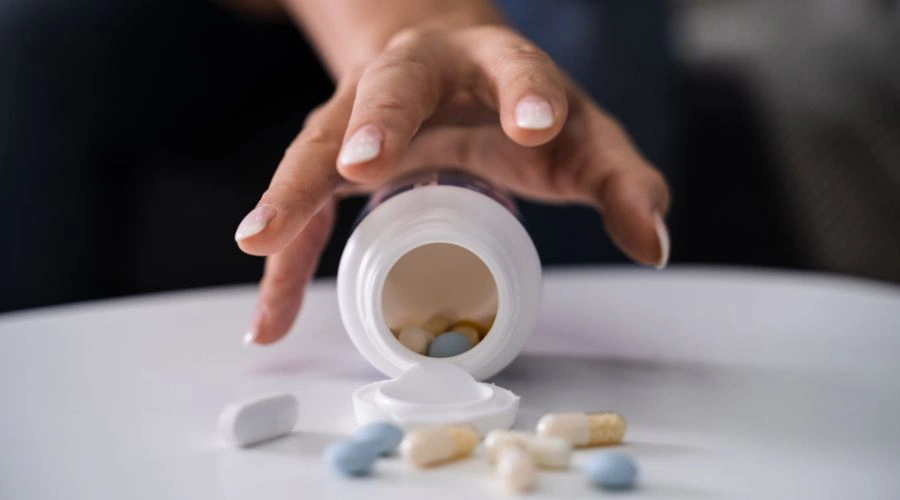Find Treatment for Teen Opioid Addiction at Artemis
Opioid addiction is a serious matter for people of all ages. Teen opioid addiction is no exception and requires substance use disorder treatment right away to turn things around.
This page will closely examine the matter of opioid misuse among teens. Understanding the problem and its many impacts is one of the biggest steps toward breaking the addiction and getting your child on the road to recovery.
Keep reading to learn more about opioid abuse in teenagers and adolescents, and the most effective forms of treatment.
You are welcome to contact Artemis Adolescent Healing Center at any time to discuss this matter confidentially and get started finding substance use treatment options for your child.
Get Effective Recovery Support Options at Artemis Today
What Are Opioids and Why Are They Addictive?
Opioids are a class of drugs that interact with opioid receptors in the brain to provide pain relief and a sense of euphoria. These drugs are highly effective as prescription medications to offer relief to patients with painful conditions. Unfortunately, opioids can also be abused, and the results can be devastating.
The feelings of pleasure and relief that are provided by opioids are to blame for their addictive nature. Repeated use of opioids alters brain chemistry and can make it difficult for people to feel pleasure without the drug. The cycle can continue until a powerful addiction has formed and the individual will keep using the drug despite the many harmful consequences.
Can Prescriptions Opioids Become Addictive for Teens?
Most people don’t start out with a plan to misuse prescription opioids. They are simply prescribed the medication for a specific purpose and begin by taking it as prescribed. Opioid misuse can soon follow, however. It’s common for opioid drugs like oxycodone, hydrocodone, and fentanyl to produce strong addictions that lead to opioid use disorder.
Anyone provided with an opioid prescription needs to proceed with care and only use the drugs as instructed. Prescription opioid misuse has become a major problem and many people wind up facing a serious addiction and even an overdose risk as a result of their opioid abuse.
It should be noted that not all opioid misuse stems from prescription opioids. Some teens will experiment with recreational opioid use and soon find themselves deep in the cycle of addiction. No matter how it starts, it’s critical to get substance use disorder treatment as soon as possible to interrupt the cycle and start on the path to recovery.
Opioid Addiction in Teens – Signs and Symptoms

There are often signs and symptoms that come along with opioid use in teens. Parents should pay attention to the behaviors exhibited by their teens to see if any of these patterns start to appear.
- Physical symptoms. Opioids are powerful drugs and physical symptoms are nearly inevitable with a use disorder of this kind. Some common symptoms include drowsiness, slurred speech, nausea, vomiting, and constricted pupils. Noticing one or more of these signs doesn’t automatically indicate opioid misuse, but they are signs that should cause you to look a little closer at the activities and behaviors of your teen.
- Behavioral symptoms. The behavioral symptoms will sometimes be just as noticeable or prominent as the physical symptoms of opioid abuse. Dramatic mood swings from high to low are common. You may also notice increased secrecy, lying about whereabouts when asked what they have been doing, and an overall withdrawal from social situations.
- Academic decline. It is difficult for a teen with opioid use disorder to keep up successfully in the classroom. Even a child who has typically performed well in school may start to struggle with grades and their teachers might express concern about the changes they have noticed.
- Financial issues. A teen dealing with opioid use disorder may frequently be asking for money and might not be able to account for money they were previously given or earned. You may even notice signs that they have been stealing as a way to fund drug purchases.
It’s often the case where an accumulation of signs and symptoms will eventually lead a parent or guardian to realize that something is wrong. The signs will pile up over time and become too significant to be ignored. Stepping in before a drug overdose occurs is vital so never hesitate to take action when you believe substance use disorder is behind the changes you have seen.
Risk Factors to Monitor
Not all teens are at an equal risk for opioid use disorder. It can happen to anyone, but some individuals are more likely to face this challenge due to factors in their lives.
Genetic factors are a starting point when evaluating risk. A history of substance abuse in the family makes it more likely that a given teen will encounter the same situation. If you know that opioid use disorder or other substance abuse issues have been a problem in your family, monitoring your teen closely is a smart strategy.
Mental health disorders also put a teen at increased risk for a substance use disorder. Young people who are dealing with things like depression and anxiety may turn to opioids as a way to seek relief from their ongoing mental health struggles.
Peer pressure has long played a role in the use of illicit drugs among teens. The friends that your teen keeps will have a lot to do with the habits they form during this impressionable stage of life. Monitor who your teen seems to be spending time with and take note of any changes in their friend group.
One other risk factor is simply having easy access to prescription opioids. If these drugs are in the house – even if they are legally prescribed and being used properly by a member of the family – your teen will be more likely to experiment with their use. The choice to misuse prescription opioids is often one of opportunity. Keep any opioid prescription hidden away and inaccessible to the teen or teens living in your home.
The Dangers of Opioid Addiction in Teens

There are many reasons to be worried about opioid use disorder in teens. The impacts of these drugs are far-reaching and can harm every part of life both now and into the future.
Let’s start with the most concerning. Drug overdose deaths are on the rise and opioids play a large role in that problem. A teen doesn’t have to be dealing with a long-standing opioid addiction to be at risk of an overdose. Drug overdose deaths can happen to anyone who is using opioids improperly. That is especially true with notorious drugs like illicitly manufactured fentanyl.
Short-Term and Long-Term Health Risks
Even setting aside the very concerning reality of overdose deaths, there are many other dangers to be worried about with opioid use. Impaired cognitive function and poor decision-making often come along with this type of drug abuse. There is also a risk of engaging in other dangerous activities such as driving under the influence. Opioid users also experience appetite suppression which can lead to dehydration and malnutrition.
There are also long-term dangers that need to be factored into this equation. Permanent brain changes can be caused by opioid misuse which will impact memory and emotional regulation for a lifetime. Opioid use has also been linked to an increased risk of some chronic diseases, including those that affect the heart and liver.
Another risk that could be included in this discussion is the potential to escalate to even more potent opioids. This addiction may start with prescription opioids but it could lead to the use of heroin, which is another drug in the opioid class. Drug abuse is a nasty downward cycle and there is no telling where it can lead once the process begins.
Consequences in All Areas of Life

It should be clear by now that every area of a teen’s life is going to be negatively impacted by opioid use. The impacts are catastrophic and it can be difficult to watch as a parent when you see your child’s life gradually declining from what it used to be.
The strain that opioid misuse puts on relationships is one of the worst parts of this addiction. Conflicts with friends and family members become common and social isolation is typically the end result.
Legal and financial troubles also abound among those who deal with opioid addiction. It is expensive to continually acquire opioids from a variety of sources. There is also the potential that illegal activities will be used in an effort to get more money to fuel the addiction. That could lead to arrests and the many negative outcomes that are associated with a criminal record.
Finally, it’s the diminished outlook for the future that will be so hard for many parents to accept. A teen with a serious opioid misuse addiction is likely to lose opportunities that would have otherwise been available. They might not be able to go to college. They might not have the same career opportunities that would have been available if they’d stayed away from drugs.
Get Accredited Treatment Programs at Artemis
Professional Opioid Addiction Treatment for Teens is Available
Few things are harder for a parent than seeing a child experience the many consequences of opioid addiction while feeling powerless to help. Finding the right assistance through a professional treatment program is the best way to aid your teen in overcoming this addiction and getting life back on track.
It’s important to find a treatment program that is specifically designed for the needs of teenagers who are struggling with opioid use disorder. The challenges that a teenager faces in life, and the reasons they may have to turn to drug use as an escape, often look different than what is seen with adults who face a similar addiction.
Detox and Withdrawal Management
The first step in the process of seeking recovery from opioid addiction is detoxification. This is the period when the individual stops using the drug or drugs and the body gradually moves the opioid out of its system.
Detox is notoriously difficult and can even be dangerous as powerful symptoms may arise from starving the body of a drug that it has become accustomed to receiving.
Managing withdrawals with the help of a qualified treatment facility is a smart way to go about this process. At this time Artemis does not offer detox.
Building a Drug-Free Future

Detoxing from opioids should be seen as a vital first step rather than a finish line. Getting off of the drugs is necessary, of course, but that really only starts the teen down a road where recovery will be possible. For true recovery to begin, the underlying causes of the addiction must be addressed as soon as possible.
This usually starts with counseling and therapy. Treatments like cognitive behavioral therapy and other evidence-based tools can be used to change thought patterns and open up new perspectives on life and the future. These treatments should always be received from a qualified, licensed professional. If possible, attempt to work with a professional who has experience caring specifically for teens who have been dealing with opioid use disorder.
Education and skill development can also play a role in recovery. This could start with taking steps to rebuild academic performance that may have been lost when the addiction was at its worst. Or, it could involve targeting some specific life skills that will be needed to successfully navigate the real world without falling into a relapse.
Support groups are yet another part of a drug-free future for many who have overcome opioid addiction. Connecting with others in a similar situation who can relate to the challenges of the recovery journey is highly powerful. This network of peers could be one of the biggest advantages your teen has on their side when moving forward in life and leaving opioids in the past.
Up To 100% of Rehab Costs Covered By Insurance
Artemis is Ready to Support Opioid Recovery for Your Child
Every teenager has so much life ahead and so many things to see and do. Opioid use disorder can disrupt even the best of plans, however. If you or a loved one is dealing with opioid misuse we encourage you to call Artemis Adolescent Healing Center today for immediate assistance.
There is light at the end of the tunnel. Professional disorder treatment is the right path forward to a life of lasting recovery. Our team is committed to the success of every client and we have the experienced, caring professionals in our facility to make that happen.
The cycle of drug abuse is powerful and painful. Take the first step toward bringing it to a stop by calling Artemis today to discuss adolescent substance use and what we have to offer. It would be an honor to serve you.






